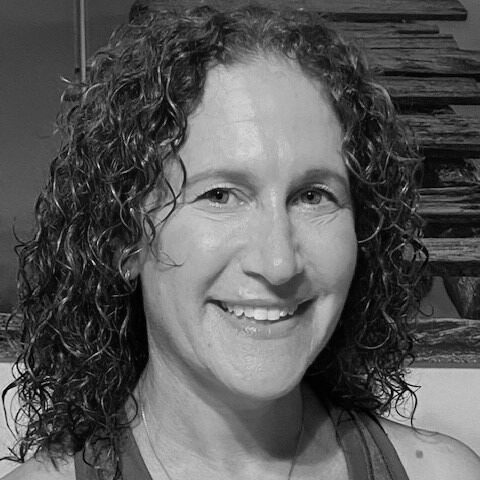




Dr. Nicole Cook is a research investigator at OCHIN. She is a health equity researcher and seasoned health care administrator with broad expertise in the design, implementation, and evaluation of complex projects within health centers. She supports local, regional and national efforts to transform care through effective patient, provider, and system-level interventions and strategies to improve care delivery and patient outcomes. She has led numerous research studies and initiatives in safety net settings to improve patient and provider experience, adopt electronic health record (EHR) tools and strategies, prepare clinics for patient-centered recognition programs, support self-management of chronic disease, and understand the health impacts of firearm violence. She has successfully been awarded, developed, and led numerous program, research and evaluation grants from Health Resources & Services Administration (HRSA), Centers for Disease Control and Prevention (CDC), Patient-Centered Outcomes Research Institute (PCORI), foundations and the National Institutes of Health (NIH).
Electronic health record (EHR) adoption and innovation offers enormous potential for technology-based quality improvement and data-informed decision-making to support primary care delivery. In Nicole’s leadership role at Health Choice Network, she developed, implemented and evaluated a care management portfolio and acquired in-depth knowledge of technology-based quality improvement initiatives in safety net clinics. She secured funding for and oversaw the development of one of the first online provider-facing quality improvement tools: QUICK (Quality Utilization Information for Clinician Knowledge) funded by a Human Resources Services Administration Innovations in Health Information Technology grant. QUICK was designed to make quality health metrics available to numerous stakeholders across health center organizations. Her doctoral work in epidemiology built on this work and focused on investigating patient and provider factors associated with pap smear compliance across health centers, and involved refining QUICK’s algorithms, and associated refinements made to EHR functions and provider training. This body of work led to subsequent investigations of uses of EHR data to inform quality improvement opportunities in hepatitis C testing, antibiotic allergy reporting, COVID-19 care, mobile dental services and the impact of COVID-19 on care delivery. At OCHIN, this work evolved to study the impact of COVID-19 on care delivery (#R01 AG074946 and #R01 MD016389) and study into how EHR adoption and innovation, combined with implementation support, can support how primary care health centers address the unmet social needs of high-risk patients (#R01 NR021115).
The Triple Aim includes three health care dimensions (patient experience, health improvement/quality of care, and reduced cost) that, when addressed simultaneously within health systems, are anticipated to optimize health system performance. Working collaboratively with community partners on a CDC Community Transformation Grant (#U58DP003661-01), on which she served as evaluation lead, Nicole leveraged funding she secured from the Health Foundation of South Florida, to conduct a comprehensive evaluation of patient experience across safety net primary care clinics in south Florida. Findings from conducting and analyzing more than 600 interviews with racially and ethnically diverse patients in eight safety net clinics indicated that most patients report being treated with courtesy and respect by their primary care provider clinic. Patients with visit continuity, including those with chronic disease, reported a more positive experience with coordination of care. However, more than half of the patients surveyed also reported difficulty in contacting their provider and difficulty with scheduling appointments, two key variables indicating access to care. Specific opportunities identified for quality improvement activities included enhancing patient engagement strategies (such as text reminders), improving the systems by which appointments are scheduled, and consistently referring patients with chronic disease to workshops and educational resources. Results were disseminated widely within the community to safety net clinic leadership and quality improvement and clinical teams through community workgroups and faculty development programs, nationally through oral and poster presentations at the American Public Health Association, and through peer-reviewed manuscripts.
Firearm violence is a major public health problem, yet the true burden of firearm violence is severely undercounted because standardized codes (ICD) only reflect acute bodily trauma. Other physical and psychological health impacts due to exposure to firearm violence, such as witnessing firearm violence and experiencing the loss of a loved one to firearm violence, is not collected and therefore unknown. Working with a team of artificial intelligence and machine learning (AI/ML) experts, Nicole is investigating the potential of ambulatory care EHR data to help more fully frame the public health burden and understand the health impacts of exposure to firearm violence. Over the past two years this ongoing work has resulted in over $1 million in funding from NIH’s AIM AHEAD (Artificial Intelligence/Machine Learning Consortium to Advance Health Equity and Researcher Diversity) to develop AI/ML models of the health impacts following firearm exposure and a Natural Language Processing model to collect data on exposure to firearm violence in unstructured clinical notes.

OCHIN, Inc.
PO Box 5426
Portland, OR 97228-5426
(503) 943-2500
OCHIN Connections is a monthly newsletter featuring the latest OCHIN news and perspectives supporting our mission to drive health equity.